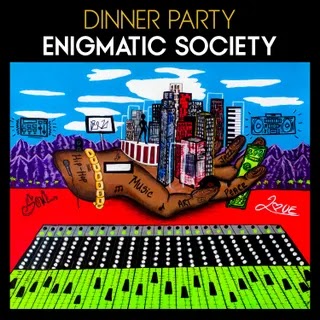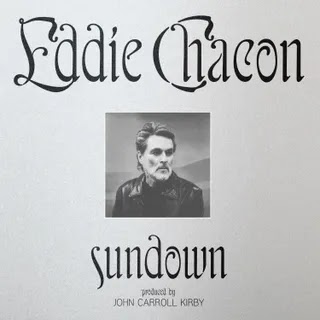The shapeshifting multimedia artist ventures into pop with a concept album that stages arch critiques of art and consumerism within a retro arcade game.
“Featuring Kilo Kish” and “by Kilo Kish” hit different. Though Kish’s breezy, playful voice turns wry, manic, and bubbly in her collaborations with Vince Staples and Gorillaz, that range rarely carried over to her solo work—especially her early music, which tended to be indistinct despite its diaristic accounts of life in New York City. For Reflections in Real Time, her 2016 debut, Kish dialed up the autobiography but struggled to assert a musical identity, her songwriting hamstrung by scattershot production. Things began to click on EPs Mothe (2018) and Redux (2019), left-field forays into throbbing electronic music that traded her signature whisper-raps for charged singing. For American Gurl, a concept album about consumerism, she ventures into pop. The shift doesn’t always pay off, but Kish sounds renewed and self-assured.
When Kish began to lean toward electronic music on her EPs, she credited performing live with the change in direction, saying it made her seek sounds that matched the spunk and angst of her personal life. The other key variable was producer Ray Brady (Vince Staples, Santigold, Black Eyed Peas), who produced Mothe and Redux in their entirety (and much of Reflections). The bracing instrumentals he supplied for those records, characterized by thick slabs of bass marbled with strobing synths and fizzy melodies, helped Kish hone the kinetic delivery on display here. She rarely uses the lithe, conversational whispers that were the cornerstone of her early music, instead bouncing from breathy melodies to raspy coos to fleet rapping. If Mothe and Redux were the proofs of concept for her pop pivot, American Gurl is the finished design, presenting Kish as a madcap shapeshifter.
Again teaming exclusively with Brady, Kish stages the album as a retro arcade game, using the concept to hop genres and smuggle social commentary into outwardly fun songs. Reminiscent of Santigold’s 99¢, Kish often speaks as and likens herself to a product. “Do you see me?/Lost my face in the TV,” she chants on “TV Baby V.2 (Latch Key March).” On “Distractions III: Spoiled Rotten,” a follow-up to two meandering tracks from her debut, she’s pithy and arch. “I ain’t shit/But I can pay to fix it,” she sings over a frothy house beat.
“You want it/I got it/This soul is/A bargain,” Kish raps over hilarious Vince Staples ad-libs on “New Tricks: Art, Aesthetics, and Money,” the album’s best song. Its gelatinous bass kicks, machine shop SFX, and sneering take on fame would be right at home on Big Fish Theory, to which Kish and Brady both contributed. Still, it’s very much Kish’s song, her verses skewering the grim nexus of art and commerce and her willingness to let the two mix.
American Gurl fumbles when Kish tones down the sarcasm and guns for straight-up pop. It’s a tough sell. A number of choruses are garbled and anticlimactic, fracturing songs rather than holding them together. Also, her beat selections don’t always play to her strengths. The frantic rhythm of “Choice Cowboy” outpaces her sedate singing. And on “Attention Politician,” Brady’s screeching synths swallow her voice whole. American Gurl’s apt sequencing and constant forward motion keep these lapses from stopping the party, but Kish’s game could use some debugging. For now, her pop instincts aren’t as sharp as her wit.
















0 comments:
Post a Comment